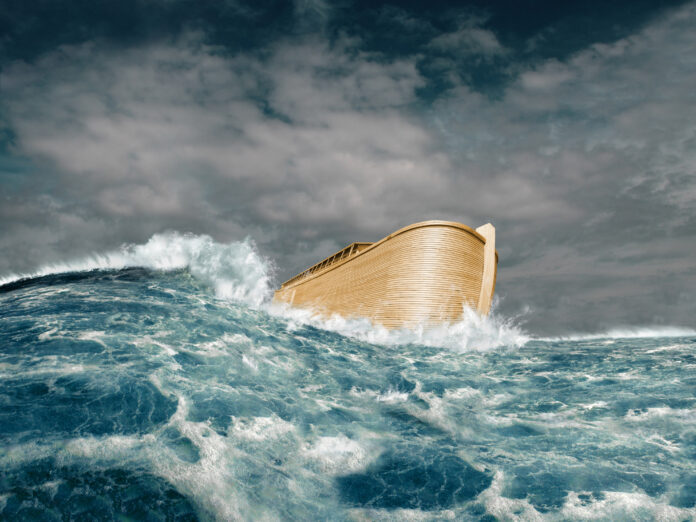Climate change has posed an existential threat to humans and wildlife. Intense droughts, storms, heat waves, rising sea levels, melting glaciers, and warmer oceans have become increasingly frequent. These events directly harm animals, destroy habitats, and disrupt human livelihood and communities. Amidst these challenging times, we can turn to the Qur’an and the Hadith to understand our role as Khalifas, or caretakers, of this planet and its inhabitants. Unfortunately, however, rising notions of fatalism in the Muslim community prevent them from leading as Khalifas on Earth.
Read More: The Quran, Sunnah, and the Path to Climate Justice
An excellent three-step strategy for overcoming fatalism in the face of growing climate concerns is provided in the example of Prophet Noah, peace be upon him (Nuh a.s): Employing disaster risk preparedness through acquiring the needed knowledge, or ‘Ilm; putting in the required effort, or ‘Amal, to prepare and protect from the disaster; and trusting in Allah, or having Tawakkul, for a favourable outcome.
‘ILM: The Importance of Seeking Knowledge
When confronted with disasters, Islam asserts that fatalism is unjustified. Humans are urged to utilize all the resources provided by God to mitigate disaster risks. Both the Quran and the Sunnah, the life of Prophet Muhammad (PBUH), underscore the paramount importance of acquiring knowledge. Prophet Muhammad (PBUH) explicitly stated in a hadith: “Seeking knowledge is a duty upon every Muslim.” This hadith emphasizes the compulsory nature of acquiring knowledge within Islam.
An illustrative instance is the story of Prophet Noah (PBUH), as recounted in the Qur’an. This narrative serves as an inspiration, emphasizing the significance of proactive preparedness in the face of potential disasters.
In this respect, the Qur’an says:
“So We revealed to him, saying: ‘Construct the Ark within Our sight and under Our guidance’; then when comes Our command, and the fountains of the earth gush forth …; and address Me not in favour of the wrong‐doers; for they shall be drowned.”
(Al‐Mumenoon 23:27)
The verse’s elucidation reveals that God directed Noah to prepare himself for the impending flood in his land. Noah (PBUH) built an ark because he knew of imminent harm. He also had knowledge of how to protect from the type of harm that was soon to befall his community. As safety is achieved when one is prepared, this directive signifies the necessity for human effort in mitigating disaster risks.
’AMAL: Effort into Action
Climate change intensifies the risks of extreme disaster events. Therefore, it’s essential to actively engage in community planning and development as key elements of disaster risk reduction strategies. The community must be equipped with knowledge, skills, and understanding to ensure awareness and preparedness for disasters. Social media is a valuable tool for raising awareness. Modern technology represents our foremost conventional resource for advancing climate awareness.
The mosque can also serve as an integral institution for sharing and expanding knowledge within the community. In Islam, the mosque has held important roles within the Islamic community since the time of Prophet Muhammad (PBUH). Mosques function as a hub for a wide array of programs, social interactions, and educational endeavours.
Islam emphasizes the rejection of fatalism and instead encourages environmental conservation no matter how grave the circumstances may be. Prophet Muhammad (PBUH) said:
“If the Final Hour comes while you have a shoot of a plant in your hands and it is possible to plant it before the Hour comes, you should plant it.”
(Sahih Al Albani)
The teachings of Islam underscore the importance of proactive measures towards safeguarding the environment and preparing for unforeseen challenges. This is exemplified by the Prophet Muhammad’s (PBUH) encouragement to engage in positive actions, such as planting trees, even when faced with imminent uncertainty. His guidance emphasizes the significance of individual efforts in mitigating potential risks and enhancing resilience.
Read More: Fasting from Consumerism: How to Embrace Minimalism
In the story of Noah (PBUH), when he received the revelation to prepare for the imminent danger of flood in his land, he put the utmost effort into protecting his community from the disaster by spreading awareness while building the arc.
“So he began to build the Ark, and whenever some of the chiefs of his people passed by, they mocked him. He said, “If you laugh at us, we will ˹soon˺ laugh at you similarly.”
(Hud 11:38)
Similarly, in the realm of disaster risk preparedness, proactive measures and community involvement are vital. These actions help to minimize vulnerabilities and ensure collective readiness to face adversities.
TAWAKKUL: Trust in Allah
The fatalistic mindset prevalent in many Muslim communities across different nations stems from a misunderstanding of Islamic teachings. Particularly misunderstood is the concept of Tawakkul, trust in God. There is a misconception that Tawakkul involves surrendering to God’s will without making any efforts or preparations for disasters. From the Islamic perspective, Tawakkul starts with human exertion and diligence. Allah does not alter the condition of a people unless they actively strive to bring about positive change in themselves. Therefore, applying knowledge and technology in disaster risk reduction represents a human effort to mitigate the impact of disasters.
Read More: The Eco-Conscious Journey of Black Muslim Americans
Allah (swt) says: “And if the people of the towns had believed and had the Taqwa (piety), certainly, We should have opened for them blessings from heaven and the earth, but they belied (the Messengers). So We took them (with punishment) for what they used to earn (polytheism and crimes).”
(al-A’raf 7:96)
Misconstruing Tawwakul as fatalism in the face of increasing climate threats can be deadly. It leads to inaction and hopelessness that can claim lives. However, Islam teaches the opposite—realistic optimism and struggle for excellence in all aspects, including bettering one’s living conditions. This can be translated into the aforementioned framework of seeking knowledge, making the effort and only then putting a complete trust in Allah for a favourable outcome.
Recognizing the urgent threats of climate change, we can turn to lessons in Islam, rooted in the Qur’an and Hadith, to protect the Earth. Drawing inspiration from the story of Prophet Noah (PBUH), we find a practical framework for preparing for disasters that is embedded in Islamic principles. By embodying the principles of knowledge, effort, and trust in Allah, we can confront the challenges of climate change with determination and hope, fulfilling our duty as stewards of the Earth.



